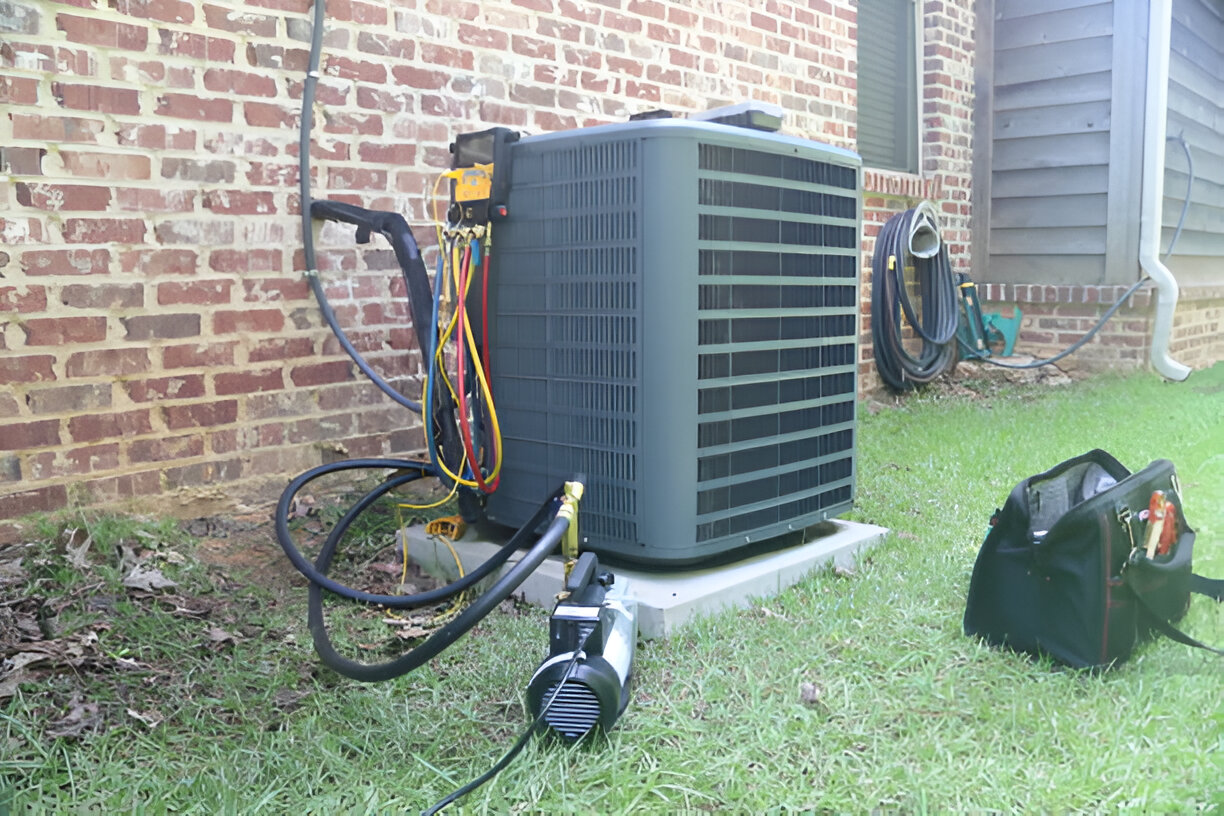
Heat Pump Maintenance in West Chester, PA
A properly maintained heat pump delivers reliable, efficient heating and cooling year after year. In West Chester, PA, where humid summers and cold, variable winters place extra strain on HVAC equipment, routine heat pump maintenance is essential to keep your home comfortable, lower energy bills, and prevent costly midseason breakdowns.
Why routine heat pump maintenance matters in West Chester, PA
West Chester experiences hot, humid summers and chilly winters with occasional subfreezing stretches. Those seasonal extremes increase run time and stress components such as compressors, reversing valves, and outdoor coils. Local factors that make maintenance particularly important include:
- High humidity that promotes dirt and biological growth on coils and drip pans.
- Tree cover and seasonal leaf drop that can clog outdoor units and reduce airflow.
- Frequent seasonal temperature swings that increase cycling and wear on components.
Regular maintenance keeps refrigerant at optimal levels, ensures efficient heat exchange, prevents short-cycling, and verifies electrical safety—helping avoid emergency repairs when you need comfort most.
Common heat pump maintenance issues in West Chester homes
- Clogged or dirty filters reducing airflow and forcing the system to run longer.
- Fouled evaporator or condenser coils that lower efficiency and increase energy use.
- Low refrigerant charge from leaks that decreases heating/cooling capacity.
- Faulty reversing valve or defrost control causing poor heating performance in cold weather.
- Worn blower motors or belts leading to noisy operation and reduced airflow.
- Corroded electrical connections or failing capacitors that risk sudden failure.
- Blocked condensate drains and pans creating water damage or humidity problems.
- Outdoor unit debris and vegetation restricting airflow and causing freeze-ups.
Identifying these issues early through scheduled inspections avoids emergency replacements and preserves system reliability.
What comprehensive heat pump maintenance includes
A full maintenance visit focuses on safety, efficiency, and performance. Typical services performed during a heat pump tune-up include:
- Seasonal inspection (spring and fall recommended) of indoor and outdoor units.
- Filter replacement or cleaning and verification of proper filter type and fit.
- Coil cleaning (evaporator and condenser) to restore heat transfer efficiency.
- Refrigerant level check and leak detection testing when pressure is outside manufacturer specs.
- Electrical safety inspection, including tightening connections and testing capacitors, contactors, and relays.
- Efficiency tuning: calibrating thermostats, inspecting reversing valve operation, and optimizing control settings.
- Blower and motor inspection: measuring airflow, cleaning fan blades, and lubricating bearings where applicable.
- Condensate drain cleaning and checking for proper slope and trap integrity to prevent backups.
- Outdoor unit care: clearing debris, verifying adequate clearance, and inspecting the base for proper drainage.
- Performance test: measuring temperature split, verifying proper defrost cycles, and confirming system cycles normally.
- Post-service report summarizing findings, prioritized recommendations, and any safety concerns.
Each step is performed with manufacturer specifications and local climate considerations in mind to maximize seasonal performance.
Diagnostic and service process explained
A routine maintenance visit typically follows these steps:
- Visual walkaround to check for obvious damage, debris, or improper clearances.
- Indoor inspection to access filters, coils, and blower components.
- Electrical tests with multimeter to verify safe voltages and component function.
- Refrigerant pressure and temperature checks to evaluate charge and heat-transfer performance.
- Clean and adjust: filters, coils, condensate system, fan blades, and control settings.
- Run system through heating and cooling cycles to observe operation, defrost behavior, and noise.
- Document findings and provide a concise service report with recommended next steps.
This structured approach ensures both immediate problems and potential future failures are addressed.
Recommended service intervals for West Chester homeowners
- Professional inspection and tune-up: at least once per year; ideally twice per year (spring for cooling prep and fall for heating prep).
- Filters: check monthly; replace or clean every 1–3 months depending on filter type, household occupants, and pets.
- Coils and condensate drains: inspected during each seasonal visit; cleaned more often if you have high pollen, pets, or visible buildup.
- Refrigerant and electrical checks: at least annually, or sooner if system performance falls off.
Twice-yearly visits catch issues after heavy seasonal use and before the system enters its next high-demand period.
How maintenance extends equipment life and lowers operating costs
Regular maintenance delivers measurable benefits:
- Improved efficiency: clean coils and properly charged refrigerant can restore 5–15% of system efficiency, lowering monthly energy costs.
- Fewer breakdowns: preventive inspections catch worn parts before they fail, reducing emergency repair frequency and cost.
- Longer equipment life: routine care can extend a heat pump’s service life by several years, delaying replacement expenses.
- Better comfort: consistent airflow and properly calibrated controls maintain even temperatures and humidity control.
- Safer operation: electrical inspections reduce fire risk and ensure safe startup/shutdown behavior.
The cumulative savings from lower utility bills, fewer repairs, and extended equipment life often outweigh the cost of scheduled maintenance.
Simple homeowner checks between professional visits
- Replace or clean filters monthly during high-use seasons.
- Keep at least 2 feet of clearance around the outdoor unit and remove leaves, grass clippings, and snow.
- Listen for new or unusual noises during cycling and note changes in runtime.
- Check thermostat settings and batteries; confirm programmed schedules are correct.
- Watch for water around the indoor unit indicating a clogged condensate drain.
These small checks reduce wear and make professional maintenance more effective.


Enjoy flexible financing options that make upgrading or repairing your HVAC system easy and budget-friendly.










